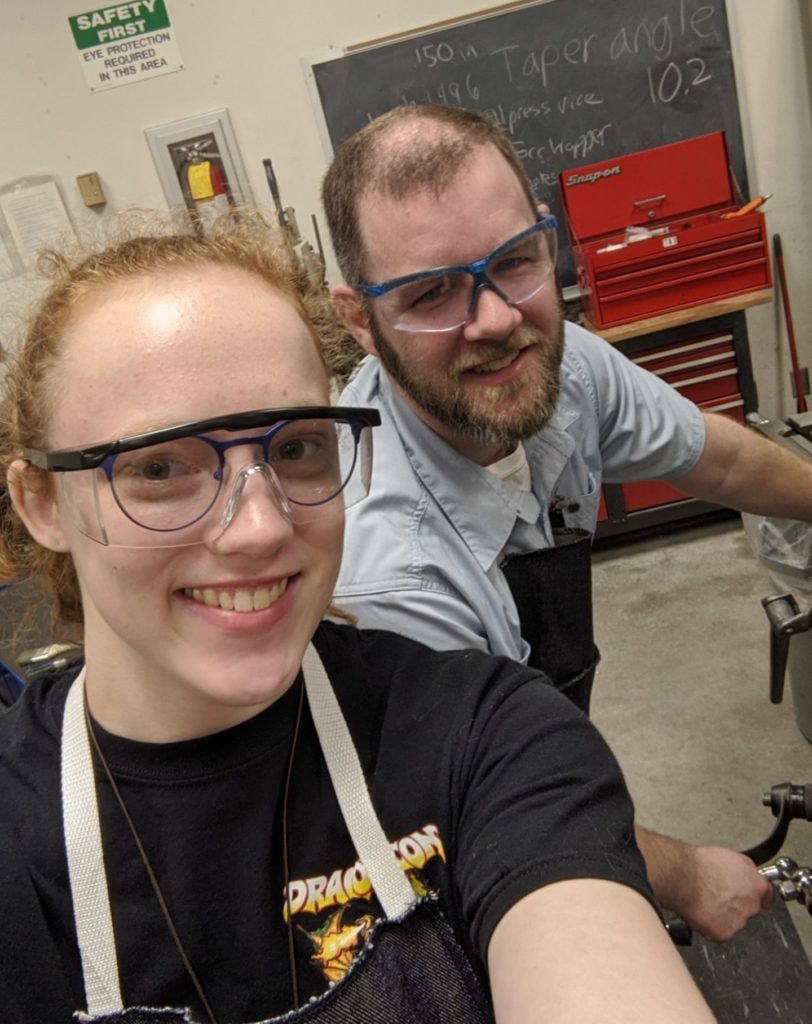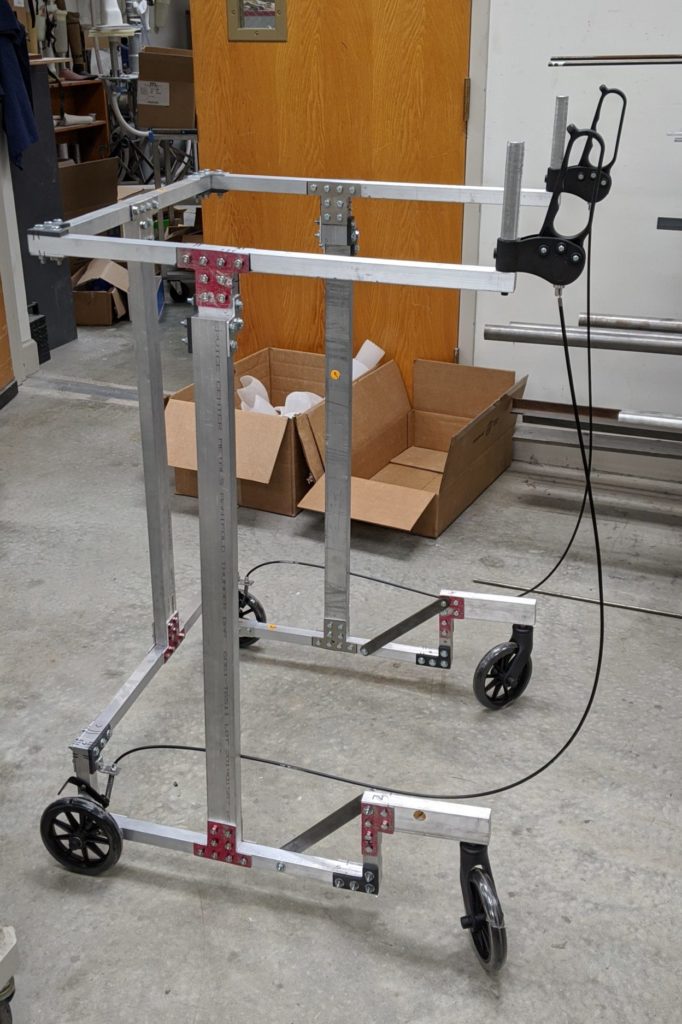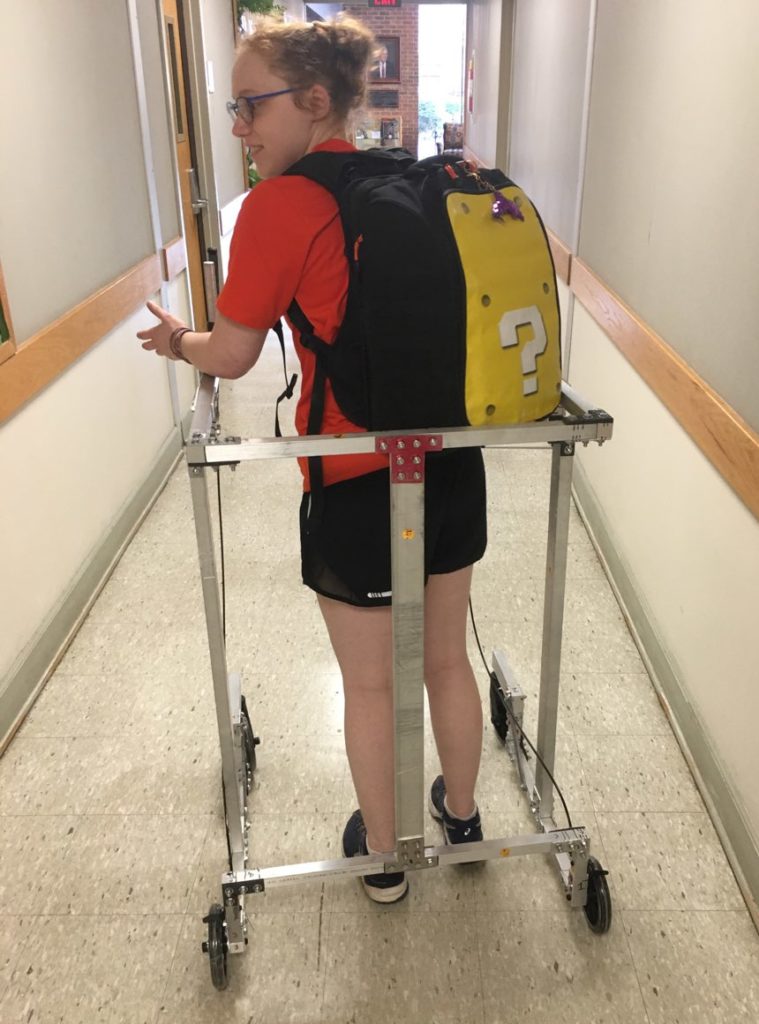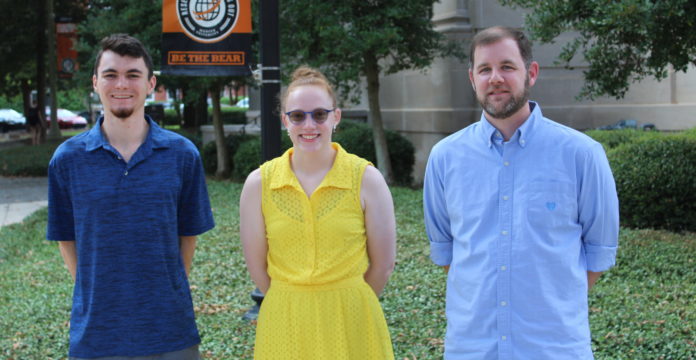Lab experiences are an integral part of many subjects of study. However, people with mobility and/or balance issues often can’t participate in the same way that their peers can.
Dr. Phil McCreanor, Mercer University professor of environmental engineering and director of the engineering honors program, suggested that a few of his students create a body-weight support system that would allow someone with limited mobility to be more engaged in labs. Engineering students Caitlin Thompson, Matthew Hunter and Landon McNeill tackled the challenge for their senior design project last year.

“We wanted students with lower limb and stability impairment to be able to have a more complete lab experience,” said Thompson, a mechanical engineering major now in her final year of the 4+1 Master of Science in Engineering program that allows students to earn both a bachelor’s and master’s degree in five years. “Otherwise, the students are usually stuck sitting, and they really miss out on parts of the lab. Our project was building a device that allows them to have stability but also to have the use of their hands.”
Dr. McCreanor said the idea for the project stemmed from his work with Mercer’s Go Baby Go program, in which engineering students modify battery-powered toy cars to fit the individual needs of children with limited mobility.
Go Baby Go was created by Dr. Cole Galloway at the University of Delaware in 2012, and programs have been started by schools and service groups across the nation and world. Dr. Galloway also has been working on support harnesses that connect to an overhead track and allow a person to move more freely throughout that area.
Through the senior design process, the Mercer students came to the conclusion that an overhead support system would work well when it could be built into a new building or one undergoing major renovations, but it would be cost prohibitive and difficult to install in an already existing building where room layouts present challenges, Dr. McCreanor said. So instead, they decided to create a rolling, portable system that could be used in any Mercer laboratory.

“(The device is) set up so they could maximize the students’ ability to interact with laboratory experiments in a traditional fashion and work across a variety of labs,” he said.
Thompson said she and McNeill built the aluminum frame, which looks similar to a walker and has four wheels and a brake system. Hunter constructed the harness system, which uses springs and a two-strap nylon harness to support the student and catch them if they fall.
They did initial testing of the frame’s weight support, brake system and maneuverability, as well as the weight support and comfort of the harness. They also researched and chose materials based on effectiveness and cost.
Dr. McCreanor said the next step is for the body-weight support system to go through further testing, perhaps by engineering honors or biomedical engineering students.

“I would love to see it get refined a little more by another group and be implemented into a lab,” Thompson said. “I think it would be amazing to have a student use it and have a better lab experience.”
Dr. McCreanor said that, in general, lab accessibility is often an afterthought, but it needs to be considered from the planning stages. He would like to see more accessible lab spaces created across the board, from elementary schools to universities. This portable device is a start.
“We want to make this the norm,” he said. “I think it would change the way other people see people who have a physical disability, but I also think it would change the way people who have a disability may see the possibility of their future.”








